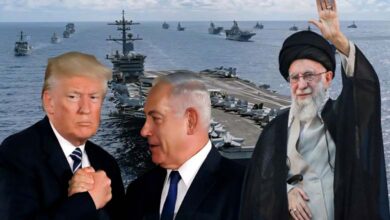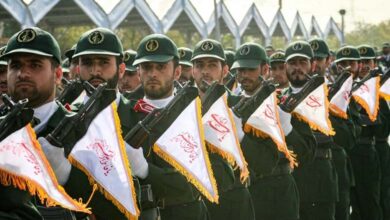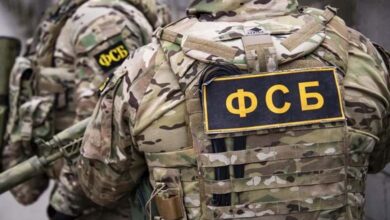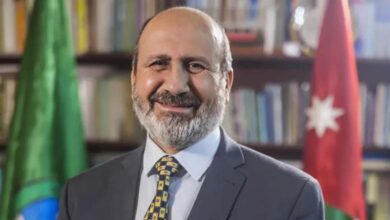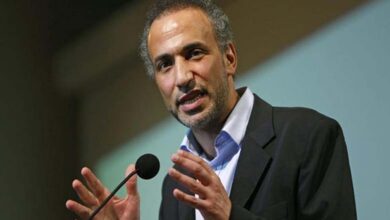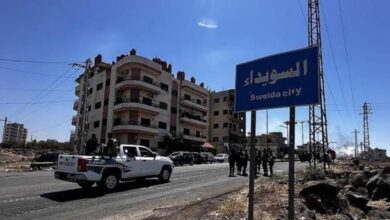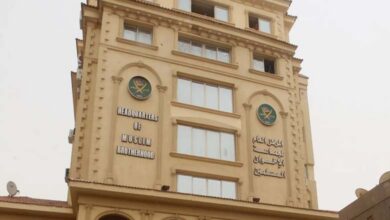Anniversary of January 25: How 14 Years of Divisions Have Disrupted the Mind of the Muslim Brotherhood
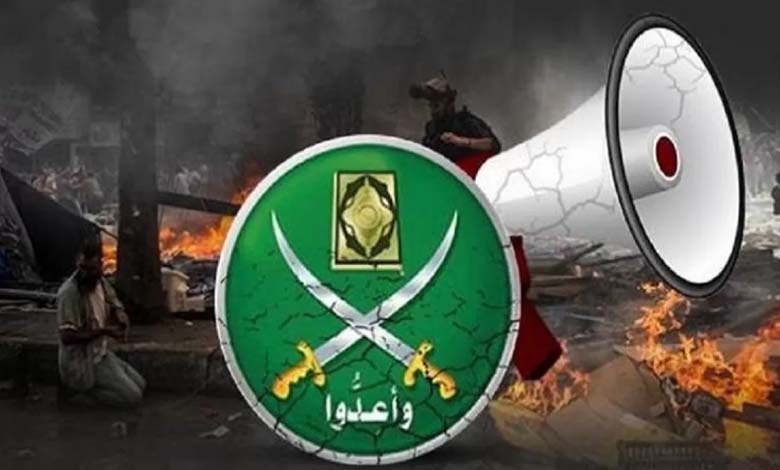
For the first time in 14 years, the anniversary of January 25 in Egypt arrives, and the Muslim Brotherhood is incapable of adopting a stance on the event that led them to power.
The confusion within the group reflects the depth of the crisis they are experiencing, having lost touch with the Egyptian reality, while being swept away by the political changes in the region and the world.
-
What is the Relationship between the Founding of the Muslim Brotherhood in Egypt, Iraq, Syria, and the Greater Israel Project?
-
“Year of Lies and Blood”: Major Terrorist Crimes Committed by the Muslim Brotherhood in Egypt
Activists associated with the fringes of the Brotherhood, who dominate the media scene on social media platforms, failed to grasp the group’s reality and hastened to interpret the regional situation as though it were favorable.
The fall of the al-Assad regime in Syria, for these activists, seemed like an illusory opportunity to reset Egypt’s clock to Damascus time, as experts have explained.
However, it seems that the hardliners within the Brotherhood realized that the crisis was deeper than betting on a new illusion that might sweep away the little that remains of them.
-
Media Recalls the Crimes of the Muslim Brotherhood and Their Attempt to “Burn Egypt”
-
A new slap to the Brotherhood in Egypt; The failure of calls November 11 marks the end of the terrorist organization
Some within the Brotherhood called for what they termed the “Revolution of the Joints,” claiming the goal was to test the readiness for protests in Egypt, after nearly 11 years of failed calls for demonstrations.
According to the proponents of this call, the so-called Revolution of the Joints would not be a traditional protest movement, but simply a gathering of supporters of this call in the streets at a specific time on the anniversary of the Egyptian revolution, without raising protest slogans or organizing demonstrations in any area of Cairo.
In recent weeks, those advocating for the so-called “Revolution of the Joints” have intensified their activity on social media to create momentum and gain new supporters for the cause. Khaled al-Serti proposed testing the response to this call.
-
An Expert Reveals the Plans and Names of Muslim Brotherhood Centers Targeting the Region and Egypt
-
The Muslim Brotherhood and Lies: The group promotes old videos to deceive Egyptian public opinion
It seemed that the leaders of the various rival factions within the Brotherhood were better able to see the absurdity of the call, choosing not to support or call for it to avoid a new failure. None of the divided factions of the Brotherhood (the Istanbul front led by Mahmoud Hussein, the London front led by Salah Abdelhak, and the General Office / Change Stream) has endorsed the call for protest.
Organizational competition between these factions did not escape the context of recent events. The General Office / Change Stream, primarily composed of groups associated with the former Guidance Bureau member Mohamed Kamal, invited members of the Istanbul and London fronts to join them and work within what they termed a “revolutionary strategic vision” to achieve the Brotherhood‘s objectives, while adding that they welcomed all members and leaders of the Brotherhood.
-
Rumors of the Muslim Brotherhood Reach Raba’a and Nahda… Egypt Denies
-
Did the Muslim Brotherhood aim to destroy the Egyptian identity? Details
This call reveals the increasing division within the Brotherhood. The General Office / Change Stream had previously received an invitation from the leaders of the London front (Salah Abdelhak) to join them, and the two teams conducted a long series of negotiations to establish a framework and method for members of the General Office to rejoin the Brotherhood and merge with the London front.
The Brotherhood’s followers were relying on the appointment of the acting guide (London front Salah Abdelhak) to end the division and reunite the group. Members of the General Office were promised this by the head of the political section, Helmi al-Jazar, but no agreement was reached due to organizational disputes. The General Office leaders requested to return to the Brotherhood at the same organizational levels and ranks they held before, which was not accepted.
-
The “Hasm” movement of the Muslim Brotherhood aimed to overthrow the ruling regime in Egypt… How?
-
Lies and Allegations: The Muslim Brotherhood Exploits the Palestinian Issue to Undermine Egypt’s Image
After the failure of the agreement between the London (Salah Abdelhak) and General Office / Change Stream fronts, the latter decided to work alone and contact their supporters, including some members present in Syria and involved in armed groups there.
The General Office front believes that the current moment will not allow any movement like the January 25, 2011 revolution to succeed. They argue that the consequences would be negative, and any attempt to initiate a movement would be crushed, and that the alternative solution is to form a political stream that includes the Brotherhood‘s youth and its supporters, aiming to achieve its objectives according to a plan that would take advantage of regional and international fluidity.
-
From the Middle Leadership of the Muslim Brotherhood… Harsh Sentences Against a Brotherhood Cell Aimed at Striking the Egyptian Economy
-
The Muslim Brotherhood’s crimes “will not be forgotten” … Egypt thwarts the group’s plans to sell Sinai
On the other hand, the Istanbul front (Mahmoud Hussein) refuses to engage in any movement or demonstration at the moment, believing the focus should be on rebuilding its own organization and reaffirming its ideological principles. That’s why they recently launched what they called the “Project of Firmness,” aiming to redefine and reaffirm the ideological and political principles of the Brotherhood.
The Istanbul front has attempted to attract a portion of the Brotherhood‘s youth to surpass their traditional rivals, the London (Salah Abdelhak) and General Office / Change Stream fronts. They appointed Ahmed Atef as head of the Brotherhood’s students and promised to strengthen the position of the youth within the organization, a traditional method used by the Brotherhood’s leadership in times of crisis.
-
Egypt’s Muslim Brotherhood decided to confront the police and any opponent… a confession exposes the group’s plots
-
Egyptian Researcher: The Muslim Brotherhood Sanctify the Writings of Hassan el-Banna and Cannot Review Them
As for the third front, the London front (Salah Abdelhak), it has not explicitly supported the call for protest on the anniversary of January 25, but has not attacked those supporting it either, as they see any movement potentially serving their goals. They had already proposed a political reconciliation with the Egyptian government, which Cairo rejected, and they believe that any movement might pressure the Egyptian government into reconsidering a proposal for reconciliation with the Brotherhood after 12 years of conflict.
Despite the differences of opinion between the rival fronts of the Brotherhood, their traditional bases and the rest of their members have rejected the idea of reviving calls for demonstrations, considering it would harm them above all.


